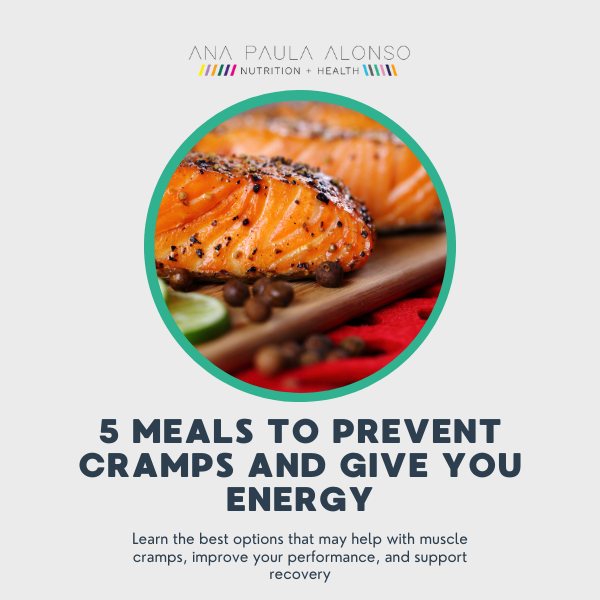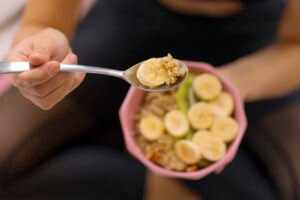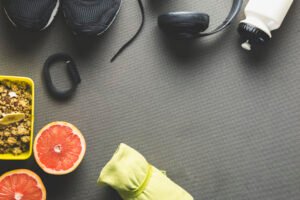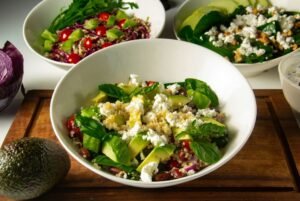Muscle cramps can be a real pain, which is true. For a beginner runner, a regular runner, or an athlete, it can disrupt your performance.
Luckily, nutrition plays a crucial role in preventing and alleviating these pesky cramps.
Let’s explore how you can use nutrition to keep your muscles happy and cramp-free.
What is a Muscle Cramp?
Muscle cramps are sudden, involuntary contractions that occur in various muscles. These contractions are often painful and can affect different muscle groups.
Muscles affected by cramps are often those in the back of your lower leg, the back of your thigh, and the front of your thigh. You may also experience cramps in other parts of the body, like the abdominal wall, arms, hands, and feet.
They can occur during or after exercise.
The intense pain of a cramp can make it difficult to walk. Or to continue the exercise (running).
Causes of Muscle Cramps
They have several causes:
- Result from overuse of your muscles
- Muscle injuries
- Dehydration (excessive loss of fluids in the body)
- Low levels of electrolytes: calcium, potassium, sodium, and magnesium.
- Nutritional deficiencies
Understanding the root causes helps you tackle them with the right dietary choices.
Preventing Muscle Cramps
Let’s focus on hydration and some nutrients.
Hydration is Key
Staying hydrated is essential for muscle function and performance. Dehydration can lead to electrolyte imbalances, a common cause of muscle cramps.

Recommendations:
- Drink water throughout the day: Aim for at least 8-10 cups daily.
- Use electrolyte drinks: During long runs or intense workouts, consider electrolyte-rich drinks. Replenish sodium, potassium, and magnesium lost through sweat.
Essential Nutrients for Muscle Health
Certain nutrients are vital for muscle function and can help prevent cramps. Here’s what you need to know:
Potassium
Role: Helps maintain fluid balance and muscle function.
Magnesium
Role: Involved in muscle relaxation and preventing spasms.
Calcium
Role: Crucial for muscle contraction and nerve signaling.
Vitamin D
Role: Enhances calcium absorption and supports muscle function.
You can prevent cramps by eating specific foods daily or weekly. Look for foods rich in those nutrients above.
If that’s too difficult for you, I created an amazing guide with recipes that include those foods. This guide has helped many runners, like me, to prevent cramps.

Free guide
5 quick and tasty meals to prevent cramps and improve performance + hydration guide.
Holistic Approach
Combining good nutrition with other strategies will further help in preventing muscle cramps:
- Regular Stretching: Incorporate stretching exercises before and after workouts. How about trying some yoga or mobility?
- Proper Warm-Ups: Prepare your muscles for activity to reduce the risk of cramps.
- Adequate Rest: Ensure you get enough sleep to allow your muscles to recover and repair. I’ll talk about sleeping in a future post.
Preventing muscle cramps through nutrition is both effective and manageable. Follow 3 steps: hydration, a diet rich in essential nutrients, and a holistic approach. Keep those cramps away!
Here’s to running without cramps!








